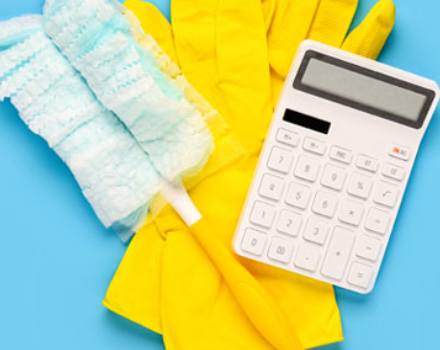
March is not just the time for decluttering your home; it’s also a perfect opportunity to clean up your finances, especially during Fraud Prevention Month. While you’re tidying up your living space, take the time to review and organize your financial documents to protect yourself from scams and fraud. By staying on top of your accounts and ensuring your personal information is well-secured, you can reduce your chances of becoming a victim of fraud. Here’s how you can spring clean your finances to keep them safe and sound.
1. Keep Your Financial Information Organized
If you struggle with staying organized when it comes to your finances, you’re not alone. However, disorganized financial habits can increase your vulnerability to fraud. Ignoring bills, tossing paperwork without thinking, or avoiding your bank statements creates an easy path for fraudsters to gain access to your personal information. By taking the time to organize your finances—whether digitally or physically—you will be able to spot any issues sooner, potentially preventing fraud before it becomes a problem.
To stay on top of your financial security, follow these organization tips:
- Create a filing system for your financial documents, both physical and digital.
- Make a habit of opening all your financial paperwork, reviewing it carefully, and then filing it away.
- Always shred old documents like credit card statements or checks that contain personal details.
2. Monitor Your Spending and Check Your Credit Report Regularly
One of the best ways to protect yourself from fraud is by tracking your spending and reviewing your credit report regularly. With the convenience of online banking and financial tools, it’s easy to keep an eye on your accounts and spot suspicious activity quickly. By getting in the habit of checking your bank statements weekly and reviewing your credit report, you’ll catch any potential issues before they escalate.
Here’s how to stay vigilant:
- Bookmark your bank’s website and check your accounts weekly.
- Sign up for a free credit report from TransUnion or Equifax to spot any discrepancies.
- Learn how to interpret your credit report to catch any incorrect or fraudulent entries.
- Always access your financial information from a secure computer and trusted internet connection.
3. Stay Informed About Common Scams
Fraud tactics are constantly evolving, and staying informed is key to avoiding scams. According to the Canadian Anti-Fraud Centre (CAFC), in 2022, there was a significant increase in fraud cases, with losses totaling a record $530 million. Keeping up to date on the latest types of fraud can help you identify potential scams and avoid falling victim to them.
Some of the most common scams include:
- Investment fraud, particularly involving cryptocurrencies
- Service scams
- Spear phishing and phishing attacks
By being aware of these risks, you can better protect yourself from becoming a target.
4. Report Fraud Immediately
If you do fall victim to fraud, don’t hesitate to report it. Many people feel embarrassed after being scammed, but reporting it is crucial. According to the CAFC, only 5 to 10 percent of fraud victims report the crime. Your report not only helps protect you but also aids authorities in identifying and addressing these crimes. By reporting fraud, you help prevent others from becoming victims.
Conclusion
Spring cleaning your finances is a proactive way to protect yourself from fraud and keep your personal information secure. By organizing your financial documents, monitoring your spending, staying informed about the latest scams, and reporting any fraud you encounter, you can significantly reduce your risk of becoming a victim. Use this Fraud Prevention Month as a reminder to clean up your finances and ensure that your financial future stays secure.









